Publications
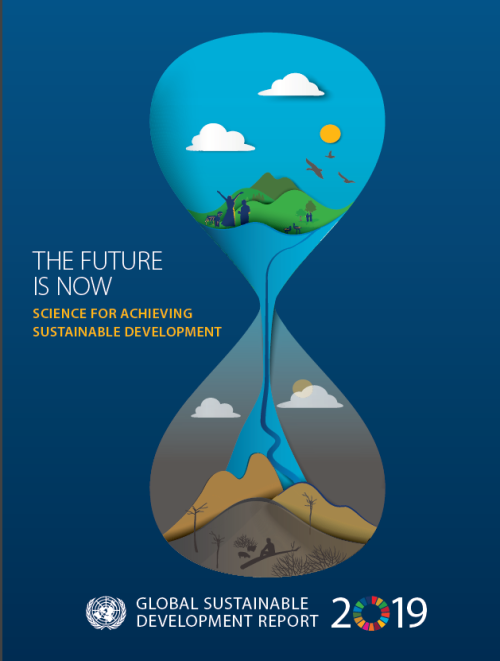
Achieving human well-being and eradicating poverty for all of the Earth’s people—expected to number eight and a half billion by 2030—is still possible, but only if there is a fundamental—and urgent—change in the relationship between people and nature, and a significant reduction in social and gender inequalities between and inside countries, according to a new United Nations report by an independent group of scientists to be launched at the 2019 SDG Summit, but made available today.
The Report, requested by all countries to evaluate progress on the 2030 Sustainable Development Agenda, is the first of its kind since the landmark Sustainable Development Goals (SDGs) were adopted…
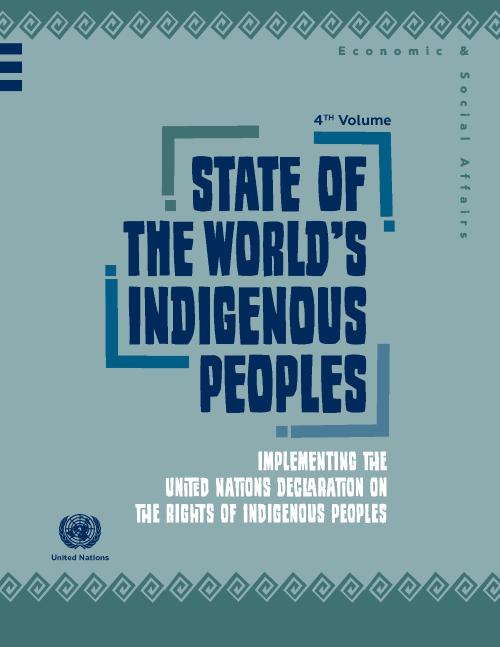
The United Nations Declaration on the Rights of Indigenous Peoples (UNDRIP) has been in place for more than a decade. Has it made a difference? What kind of impact has it had on the survival, dignity and well-being of indigenous peoples. How has it been used? What can be learned from the many ways in which it has been applied and from the obstacles encountered? What gaps and challenges still exist that may be preventing the full implementation of the Declaration? What is the way forward to realize the full potential and promise of the Declaration? These are the questions this publication seeks to explore. This edition of the State of the World’s Indigenous Peoples (SOWIP)…
The impacts of climate change and increasing inequality across and within countries are undermining progress on the sustainable development agenda, threatening to reverse many of the gains made over the last decades that have improved people’s lives, warns the 2019 report on the Sustainable Development Goals.
Launched during the UN High-level Political Forum on Sustainable Development, a critical annual stocktaking event, the report, based on the latest available data, remains the cornerstone for measuring progress and identifying gaps in the implementation of all 17 Sustainable Development Goals.
Four years since the adoption of the Sustainable Development Goals --…
The world’s population is expected to increase by 2 billion persons in the next 30 years, from 7.7 billion currently to 9.7 billion in 2050, according to a new United Nations report launched today.
The World Population Prospects 2019: Highlights, which is published by the Population Division of the UN Department of Economic and Social Affairs, provides a comprehensive overview of global demographic patterns and prospects. The study concluded that the world’s population could reach its peak around the end of the current century, at a level of nearly 11 billion.
The report also confirmed that the world’s population is growing older due to increasing life expectancy and…
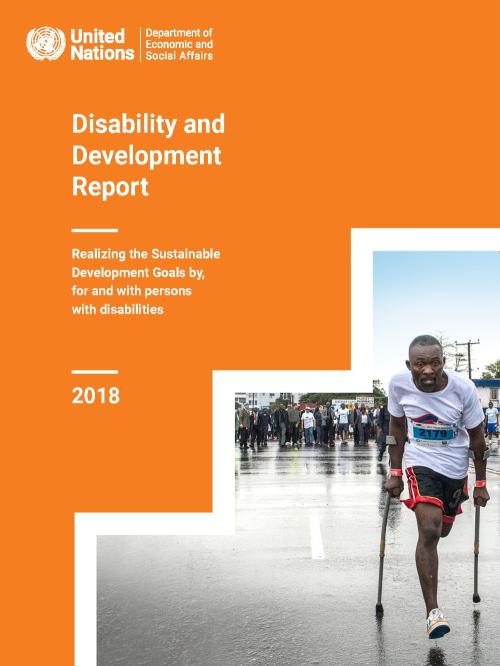
UN Disability and Development Report – Realizing the SDGs by, for and with persons with disabilities
The 2030 Agenda, pledging to “leave no one behind,” is an ambitious plan of action of the international community towards a peaceful and prosperous world, where dignity of an individual person and equality among all is applied as the fundamental principle, cutting across the three pillars of the work of the United Nations: Development, Human Rights and Peace and Security. It is critical to ensure, in this regard, the full and equal participation of persons with disabilities in all spheres of society and create enabling environments by, for and with persons with disabilities.
The UN Disability and Development Report – Realizing the SDGs by, for and with persons with…
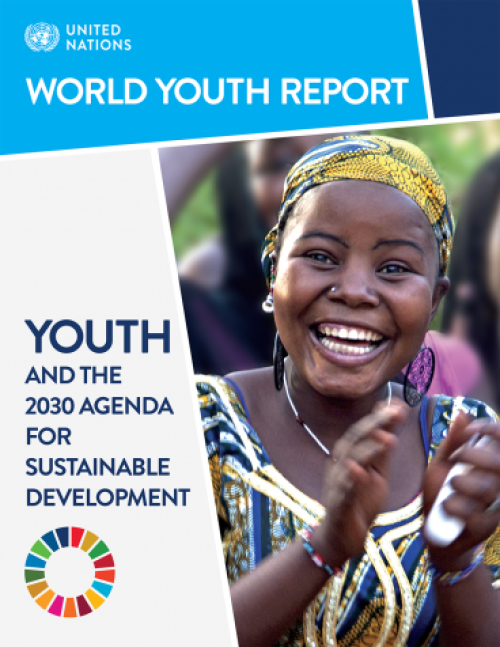
The World Youth Report on “Youth and the 2030 Agenda for Sustainable Development”, prepared by the United Nations Department of Economic and Social Affairs (UN DESA), examines the mutually supportive roles of the new agenda and current youth development efforts. The report provides insight into the role of young people in sustainable development in the context of the implementation of the 2030 Agenda for Sustainable Development and related frameworks, in particular, the Addis Ababa Action Agenda of the Third International Conference on Financing for Development and the World Programme of Action for Youth.
The Report considers the role the 2030 Agenda can play in enhancing youth…
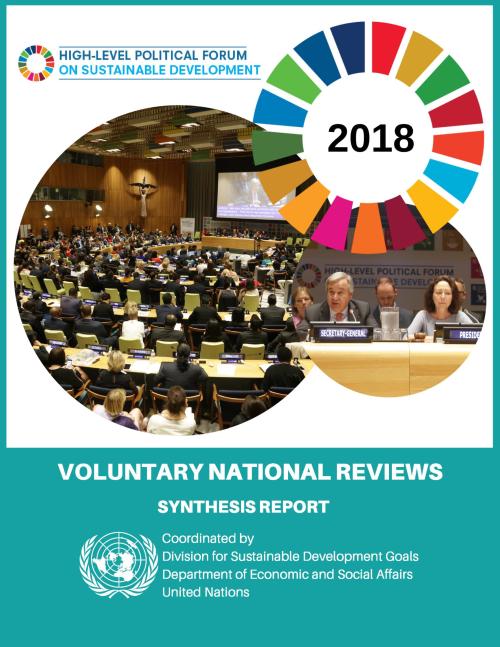
The 2018 High-Level Political Forum (HLPF) on sustainable development took place from 9 to 18 July. A total of 46 countries presented voluntary national reviews, up from 43 countries that conducted reviews in 2017. Since the inaugural reviews in 2016, 111 reviews have been presented, by 102 countries, with a number of countries conducting second reviews. Looking ahead to the 2019 HLPF, it is anticipated that 51 countries will present their national reviews, of which 41 will be doing so for the first time.
The voluntary national reviews document how countries are tackling the transformative challenge of the 2030 Agenda. The reviews are country-specific and complement the broader…
A fast-changing climate, conflict, inequality, persistent pockets of poverty and hunger and rapid urbanization are challenging countries’ efforts to achieve the Sustainable Development Goals (SDGs), according to the UN’s latest SDG progress report.
The Sustainable Development Goals Report 2018 found that conflict and climate change were major contributing factors leading to growing numbers of people facing hunger and forced displacement, as well as curtailing progress towards universal access to basic water and sanitation services.
For the first time in more than a decade, there were approximately 38 million more hungry people in the world, rising from 777 million in…
Today, 55% of the world’s population lives in urban areas, a proportion that is expected to increase to 68% by 2050. Projections show that urbanization, the gradual shift in residence of the human population from rural to urban areas, combined with the overall growth of the world’s population could add another 2.5 billion people to urban areas by 2050, with close to 90% of this increase taking place in Asia and Africa, according to a new United Nations data set launched today.
The 2018 Revision of World Urbanization Prospects produced by the Population Division of the UN Department of Economic and Social Affairs (UN DESA) notes that future increases in the size of the…
Universal social protection is a potent development policy tool that can alleviate poverty, inequality and social exclusion. Few countries have been able to reduce poverty and improve living conditions on a broad scale without comprehensive social protection systems in place.
The international community’s consensus on the importance of social protection has been reinforced with the adoption of the 2030 Agenda for Sustainable Development. Target 1.3 of the Sustainable Development Goals stresses the role of social protection in ending poverty in all its forms, as it seeks the implementation of “nationally appropriate social protection measures and systems for all, including floors…
There are now an estimated 258 million people living in a country other than their country of birth — an increase of 49% since 2000 — according to new figures released by UN DESA today, on International Migrants Day. The International Migration Report 2017 (Highlights), a biennial publication of the department, states that 3.4% of the world’s inhabitants today are international migrants. This reflects a modest increase from a value of 2.8% in 2000. By contrast, the number of migrants as a fraction of the population residing in high-income countries rose from 9.6% in 2000 to 14% in 2017.
The report reviews the latest migration trends, assesses the demographic contribution of…
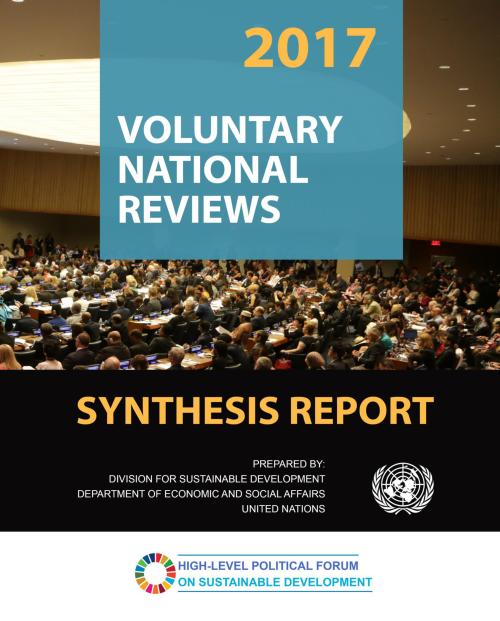
The 2017 meeting of the High-Level Political Forum on Sustainable Development (HLPF) took place from 10 to 19 July. A total of 43 countries presented voluntary national reviews, up from 22 countries that presented inaugural reviews at the 2016 HLPF. With this, more than a third of countries will have conducted a voluntary national review, sharing progress, experiences, lessons learned and challenges in implementing the 2030 Agenda. Looking ahead, at the 2018 HLPF, 47 countries will present their national reviews. Four of these will be conducting their second review at the HLPF (Colombia, Egypt, Mexico, and Switzerland) and one country its third (Togo). This report synthesizes some of the…
 Welcome to the United Nations
Welcome to the United Nations